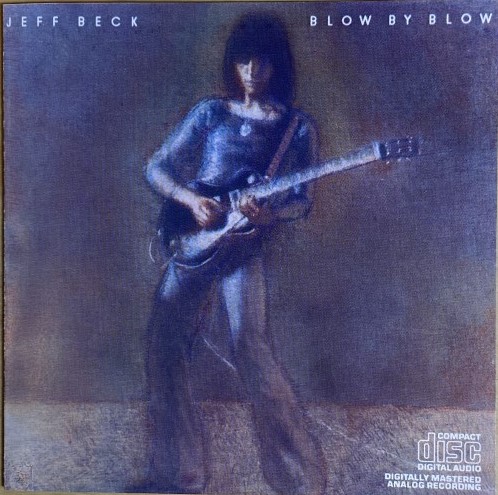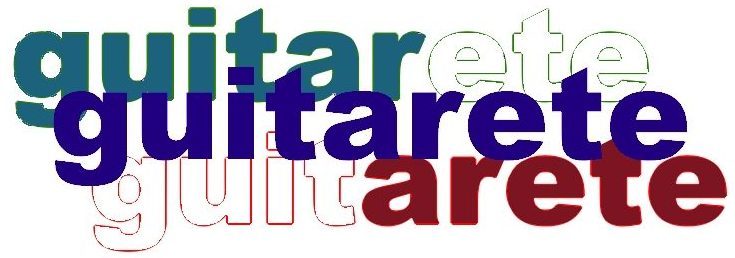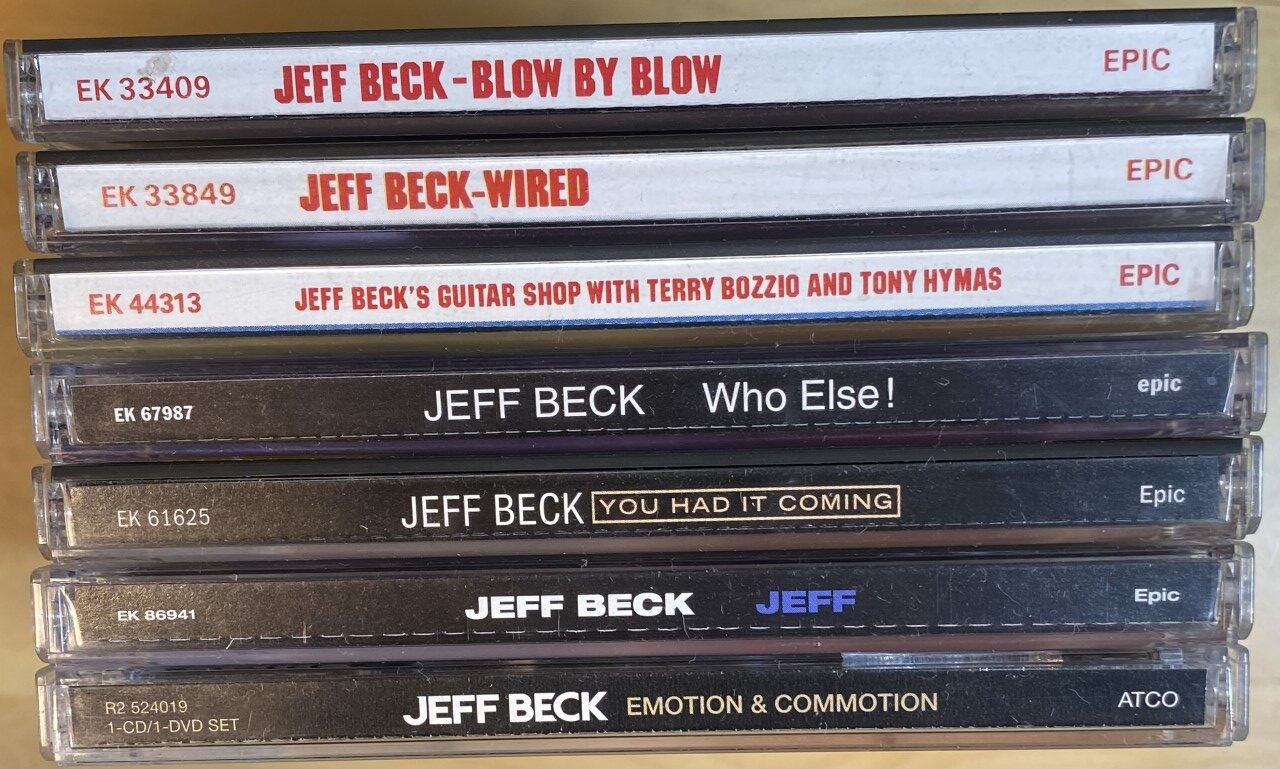“Jeff Beck never lets us down,” I said, many years ago, to a friend. At the time, I was probably looking forward to the dropping of a new Beck album. What I had in mind was the feeling that surrounds my expectations when I listen any of the albums in his catalog or click on a video of him playing live: from Jeff Beck, you get what he has discovered through his singular, restless, and unfailingly authentic electric-guitar-centered explorations. I always expected something surprising , something unconventional, to some degree. While I love some of his albums much more than others, Jeff Beck always fulfilled that expectation. He was an extraordinary contributor to the guitar world from 1964 through early 2023, and his sudden passing is an incalculable loss.

Always Getting Started
Beck was an uncompromising instrumentalist specifically by being all about the whole, all about the music. He completely transcended the unedifying but perennial guitar-nerd debate about chops versus musicality. His command of the instrument was peerless and, when he felt like it, he wasn’t reticent about putting it front-and-center, impossible not to notice. Frequently, however, his skill was of the kind that only really blows you away when trying to understand how he made something in his music happen. His technique was there, but it was never alone. He was the guy who titled an album “Flash” in the mid-80s—right about the height of an era associated with in-your-face guitar playing—who no one accused of being all-flash, too-flashy, all-chops-no-music, or any of the other pejoratives that, at the time, were thrown at many guitarists of considerable skill. I guess it helped that he made his name decades earlier and was closely associated with an earlier generation of guitarists. What wasn’t so evident in the mid-80s was that Jeff Beck still had decades of adventurous music ahead.
The Natural Electric Guitarist
Beck was forever edgy, but not necessarily angry, in spite of his well-earned, early image as temperamental guitar-smasher. As he matured, he played achingly beautiful melodies and noisy barrages with equivalent musical commitment. Everything was dynamic. He juxtaposed rawness and refinement, channeling both through his exquisitely detailed touch, endlessly finding varied ways to manipulate pitch, volume, and attack. Nothing seemed overly planned and nothing seemed out-of-place. Somewhere—Guitar Player magazine, very likely—a commentator described Jeff Beck as one of most natural specifically electric guitarists ever to pick up the instrument, and that strikes me as an accurate call.
Bringing Out the Best in His Band
Beck’s comfort with his own edginess made everyone in his band sound great. Yes, he was the center of the show, though neither thirstily arrogant nor mock-modest. But the many musicians who passed through the incarnations of his band, in the studio or onstage, were there to play with him, not just back him up. Keyboardists Max Middleton and Tony Hymas are integral to much of Beck’s best known music. Jennifer Batten, who, until 2010, was the only other guitarist to record on Jeff Beck albums, may have done her finest, if not highest-profile, work to date as a member of Beck’s group. Bassist Tal Wilkenfeld quickly became a key member of the band documented on Beck’s much-loved Live at Ronnie Scott’s. And, it cannot be forgotten that, although best known for instrumental music, Beck could find extraordinary chemistry with singers. Rod Stewart never sounded better than on his one-track, 1985 reunion with Beck, their lovely cover of Curtis Mayfield’s “People Get Ready.” Have you heard Beck and Jimmy Hall on “Gets Us All In the End” recently? What about Beck’s take on Muddy Waters’s “Rollin’ and Tumblin’,” featuring singer Imogen Heap, from his 2000 release, You Had It Coming?
/
A Transformative Collaborator
With a musician as great as Jeff Beck, it’s pointless to talk about alleged deficits, but, if one were to put anything in that column, it would have to be that Beck wasn’t a prolific writer. After 1975, he has a single solo writing credit on a studio album bearing his name. On Wired, one of his definitive albums, Beck doesn’t have any writing credits. Nonetheless, as Beck shared in co-written music or music written entirely by others, he made every tune he played his own. Beck could really get inside someone else’s song. His take on Charles Mingus’s “Goodbye Porkpie Hat” is arguably the definitive version of the tune. It’s hard to imagine the music of some of his closest collaborators, such as Hymas and Middleton, without Beck’s transformative guitar. Even collaborators who did plenty of notable work in other contexts, such as Narada Michael Walden and Jan Hammer, had career highlights as writing and performing members of Beck’s group.
The Beck Influence
Among guitarists, what is the essence of the Beck influence? This is a deep, difficult-to-answer question. Whatever it is, I think it is specific to electric guitarists. I’ve never heard of his influence attributed anyone who isn’t an electric guitarist. At the same time, you certainly don’t hear many guitarists who sound like Jeff Beck. No one talks about Beck-clones. His influence is hard to pin down. Some might say it’s an “I know it when I hear it” thing. I gently suggest that to speculate about it, one has to look at players on a pretty rarified level. If I had to name names, my list would include (but, of course, not be limited to) players such as Eddie Van Halen, Joe Satriani, Scott Henderson, and Adrian Belew. While Henderson’s playing includes explicit homage to Beck’s whammy-bar technique, I wouldn’t ever limit Beck’s influence to technique. It seems to me that it’s in finding melody in every idiosyncrasy of the electric guitar, in embedding music into the instrument’s properties. It’s a conceptual, integrative influence that manifests in finding a personal approach to music that can only be fulfilled on the electric guitar. Could it be that, by internalizing the kind of relationship Beck had with the electric guitar, you become more yourself as a guitarist? In addition to having created so much enduring music, Jeff Beck was an avatar of devotion to the electric guitar.

